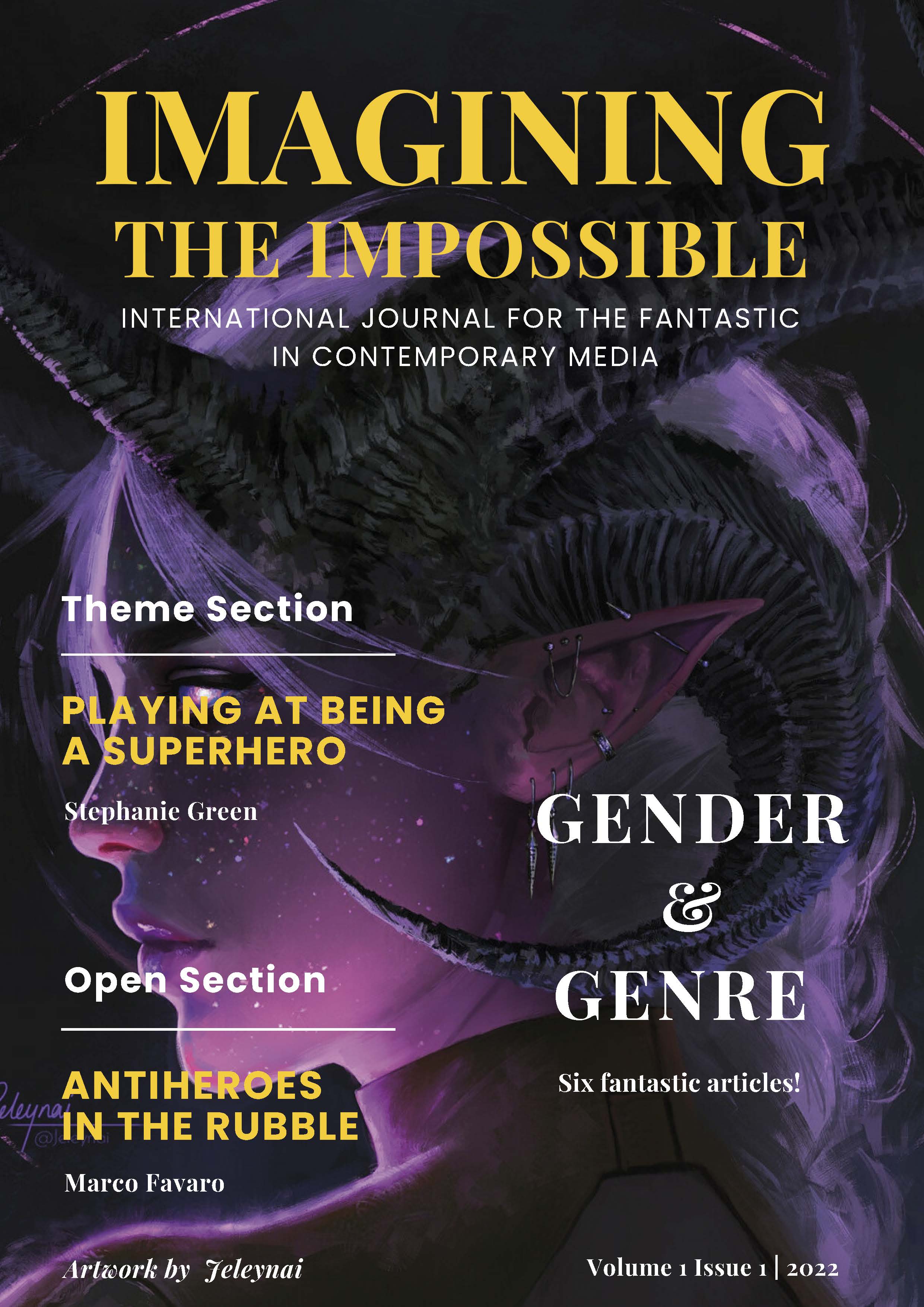Antiheroes in the Rubble
Exploring the possibility of heroism in dystopias from Watchmen to The Last of Us
DOI:
https://doi.org/10.7146/imaginingtheimpossible.129923Keywords:
Dystopia, Antihero, hero, catastrophe, rebelAbstract
In contemporary popular culture, we see a growing number of both antiheroic characters and dystopias in which society as we know it has ceased to exist. Antiheroes are not necessarily placed in dystopian narratives, but the combination of antihero-dystopias is significant. The dystopia forces us to adopt a new moral compass, one which does not allow a superficial dichotomy of good versus evil. Camus’ philosophical ideas, particularly those articulated in The Rebel, are vital to understanding the controversial morality of the dystopic narrative. If society collapses and there is nothing left to save, what role does the hero have? Is it possible to be a hero in a condemned world? The answers to these questions will be addressed in relation to three media fictions: V for Vendetta, Watchmen, and The Last of Us. This article explores the possibility that the only possible heroism inside a dystopian narrative is antiheroic.
References
Arnaudo, Marco. Il Fumetto Supereroico. Mito, Etica e Strategie Narrative. Latina: Tunué, 2010.
Brelich, Angelo. Gli Eroi Greci. Un Problema Storico-Religioso. Milano: Adelphi, 2010.
Brombert, Victor. In Praise of Antiheroes. Figures and Themes in Modern European Literature 1830 – 1980. Chicago: The University of Chicago Press, 1999.
Camus Albert. The Rebel: An Essay on Man in Revolt. Translation by Anthony Bower. New York: Vintage International, 1992.
Christin Bolay and Andreas Schlüter Band 3.1. Uni Freiburg, DFG 2015, 63-77.
Ilardi, Emiliano, Annamaria Loche, and Martina Marras (eds.), Utopie
Mascherate. Da Rousseau a Hunger Games. Milano: Meltemi, 2018.
MoorEco, Umberto. “Il Mito di Superman”, in Umberto Eco, Apocalittici e Integrati. Milano: Bompiani, 2016.
Grantham, Michael. The Transhuman Antihero: Paradoxical Protagonists of Speculative Fiction from Mary Shelley to Richard Morgan. Jefferson: McFarland & Company, 2015.
Haller, Andreas J. “‘That dirty little coward:’ Die Verkehrung des Heroischen in Ron Hansens”, in (Anti)Helden. Heroes. Héros. E-Journal zu Kulturendes Heroischen. Faszinosum Antiheld, edited by Ann-e, Alan, and Dave Gibbons.Watchmen. DC Comics, Salem 2014.
Moore, Alan, and David Lloyd. V for Vendetta. VERTIGO/DC Comics, New York 2005.
Muzzioli Francesco, Scritture della Catastrofe. Istruzioni e Ragguagli per un Viaggio nelle Distopie. Milano: Meltemi, 2021.
Nietzsche, Friedrich. Der Fall Wagner. Götzen-Dämmerung. Der Antichrist. Ecce Homo. Dionysos-
Dithyramben. Nietzsche contra Wagner. Kritische Studienausgabe herausgegeben von Giorgio Colli und Mazzino Montinari. DTV de Gruyter, München 2014.
---. Jenseits von Gut und Böse. Zur Genealogie der Moral. Kritische
Studienausgabe herausgegeben von Giorgio Colli und Mazzino Montinari. DTV de Gruyter, München 2014.
Petruccioli, Stefano. X-Men. Per un’Etica Indagata in Stile Mutante. Milano-Udine: Mimesis, 2015.
Simmons, David. The Anti-Hero in the American Novel. From Joseph Heller to Kurt Vonnegut. New York: Palgrave Macmillan, 2008. https://doi.org/10.1057/9780230612525
Weinelt, Nora. “Zum dialektischen Verhältnis der Begriffe ‘Held’ und ’Antiheld’”, in (Anti)Helden. Heroes. Héros. E-Journal zu Kulturendes Heroischen. Faszinosum Antiheld, edited by Ann-Christin Bolay and Andreas Schlüter Band 3.1. Uni Freiburg, DFG 2015, 15-22.
Zupančič, Alenka. Ethics of the Real. Kant, Lacan. New York: Verso, 2000.
Downloads
Published
How to Cite
Issue
Section
License
Copyright (c) 2022 Marco Favaro

This work is licensed under a Creative Commons Attribution 4.0 International License.
Copyright author. CC by license 4.0.




